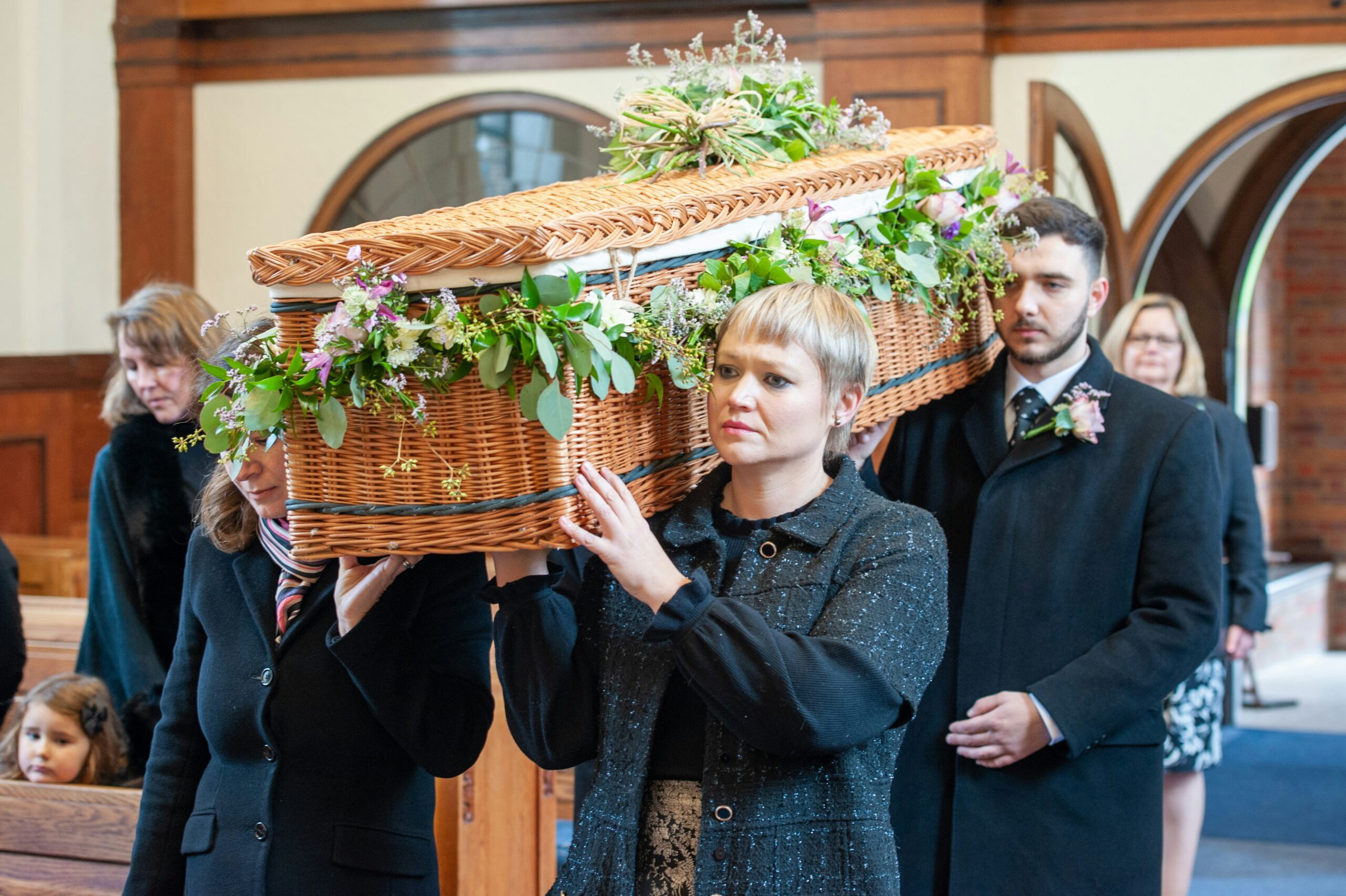“Why would you want to do that?” “I guess it takes a special kind of person.” “Isn’t it depressing?” I often wonder if bankers, auto mechanics, librarians, or retail managers get interrogated as to the motives behind their career choice as often as I do. This vocation just feels dubious to people, and let’s face it, the funeral industry has earned its bad reputation. Greedy corporations buy up mom and pop places, where sketchy owners swindle people out of hard-earned savings and turn away those who do not fit into their microscopic worldviews. That inherent duplicitousness mixes with our pleasure-seeking American culture and tries shield us from the very thought of death as much as possible in a dangerous out-of-sight, out-of-mind mentality.
We spend more time attempting to sterilize and clinicalize death—so it may be merely a symptom we can prescribe away—than it would take to simply confront death in a meaningful and productive manner. It is no wonder then, why we in deathcare receive such knee-jerk reactions to our chosen field—and maybe it is the rebel in me—but I live for that moment. I love nothing more than to give an impromptu lecture on the importance of funerals and how they are inexorably entwined with what it means to be human. I do this work because I care deeply about my fellow human beings… even though they make it really difficult sometimes.
Employers, coworkers, friends, family, strangers; I have been asked by many people since I started down the mortuary path why I would want to be around death and sad people all the time. That’s a tricky question, because I really don’t know how to give adequate words to the feeling that drives me. As much as I hate to refer to it as a calling—because to me that has a religious connotation, and I am a staunch atheist—I haven’t yet found a better way to explain it. Something stirred inside me long ago, a small voice telling me this was where I needed to be, but it was only after many years of shushing those rumblings that the voice finally grew loud enough that I could no longer ignore it.
“To be nobody-but-yourself —
in a world which is doing its best, night and day,
to make you everybody else —
means to fight the hardest battle
which any human being can fight;
and never stop fighting.”
— E. E. Cummings
I had built a two-decade-long career in healthcare, and despite knowing that I was helping people, it somehow felt hollow. I left the culinary industry to work at a nursing home initially because I felt that no matter someone’s skill set, they could use it to help people. But the more my career progressed (i.e., the more money I made) the farther removed I became from the patients and their families. It is hard to feel like you’re making an impact when patients are just room numbers or ticket times, and the deepest thing you learn about the person you’re caring for is that they have a gluten allergy or really hate pineapple juice.
Every morning at work I would be the first person in the kitchen, deep in the basement of the hospital, all alone in the dimly lit corridors just down from the morgue (which everyone but me avoided). I spent a lot of time thinking about why I was there and where I would rather be (in the morgue). I started questioning what I would do if money was no object. If I didn’t have to labor under capitalism, where would I be? I would go back to school, I told myself. I would read and learn and do something that nourished my soul and uplifted my community. I would do what I should have done when I was young and stupid and dropped out of college—not once (early childhood education), not twice (art therapy), but three times (dietetics). Each time denying the work I really wanted to be doing.
But, being a realist, I know The Revolution™ isn’t coming. There will be no proletariat paradise where I can do the work I yearn to do, sans worry for how I will put food on the table, or a roof overhead. If I want a better life for myself and everyone else, I have to make it. I stopped wishing that things will change (because in the grand scheme of things, I know they won’t) and decided to take matters into my own hands. This is not without consequence, the realist in me knows—as I now have a mountain of student loan debt—but I know that I could not have gone on as I was. If I want joy and connection and community and solidarity in life, I must create those things, because they will not be given to us by a system that profits from our misery and loneliness. Maybe I will be paying those student loans until I die (being as I’m already at midlife). But maybe doing this work that I am so passionate about will create new opportunities that would have never presented themselves before. If I want deathcare to become more inclusive and accessible, I will make it happen. No great change comes without effort. Perhaps deathcare isn’t my calling, but my revolution.
What I’ve learned about myself through this journey into funeral service is that in order to care for our fellow humans—living and dead—it takes someone who will not balk at the mere mention of death. It takes someone who can sit quietly and comfortably beside an eighty-year-old woman, companioning her while she tells you that your funeral home took care of her partner when she died twenty years ago, and watch as the moisture of her tears reconstitutes that grief as though her funeral were today. Someone who can gently wipe the dirt and blood from a person’s face while speaking softly to them as though they can hear you when you say, “I’m going to take good care of you.” Someone who can go out into the community and show them that their unique needs matter and should be met—will be met! To tell them that they have a choice, teach them that they have rights, and remind them that we need to start having these conversations right now. Because if we don’t, who will?
So yes, random person in line at the grocery store who asked why I’m dressed for a funeral—it does take a “special kind of person” to do this work. Maybe we are a bit unusual, a bit weird—but it is in the most beautiful and spectacular way possible. Because caring for our dead is such a fundamental part of what it means to be human that it is literally in our name. Humanity received its Latin name humanitas from the root word humare, which means “to bury.” We have been doing so, in one form or another, since at least 10,000 B.C.E., and we will continue to do so in every culture across the globe—because it is a foundational part of who we are. It is alright if you cannot imagine caring for the dead—because I can. It is written in the lines of electric code that run through my brain and it is etched on the surface of my aching bones. I’m just built differently, and I like it that way.


